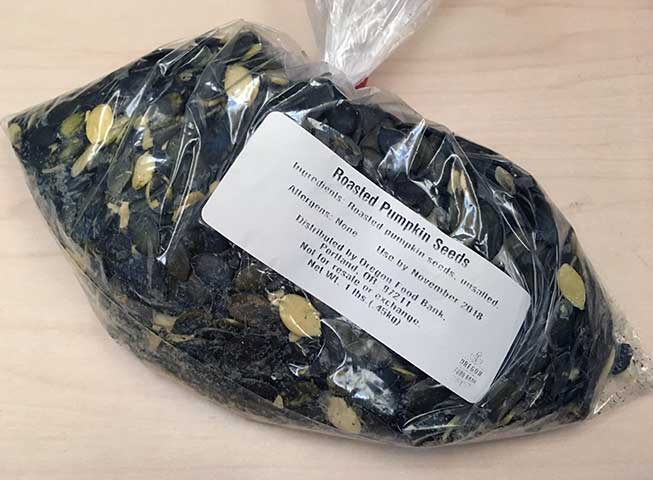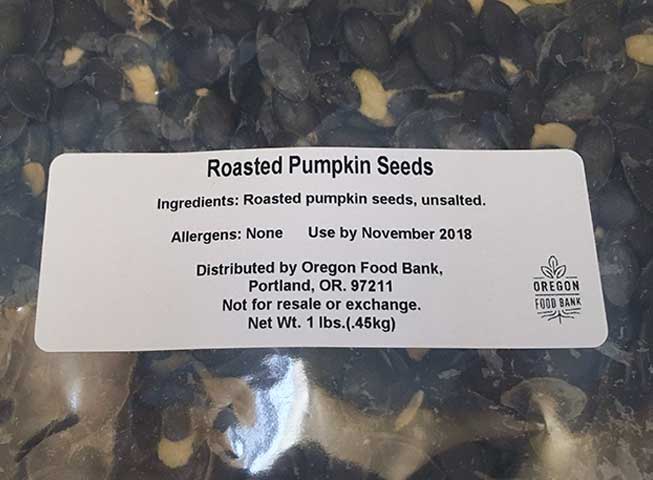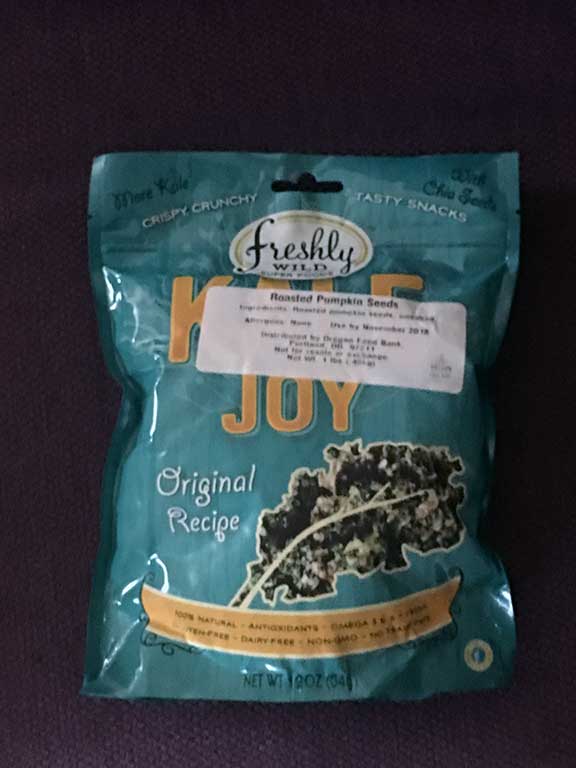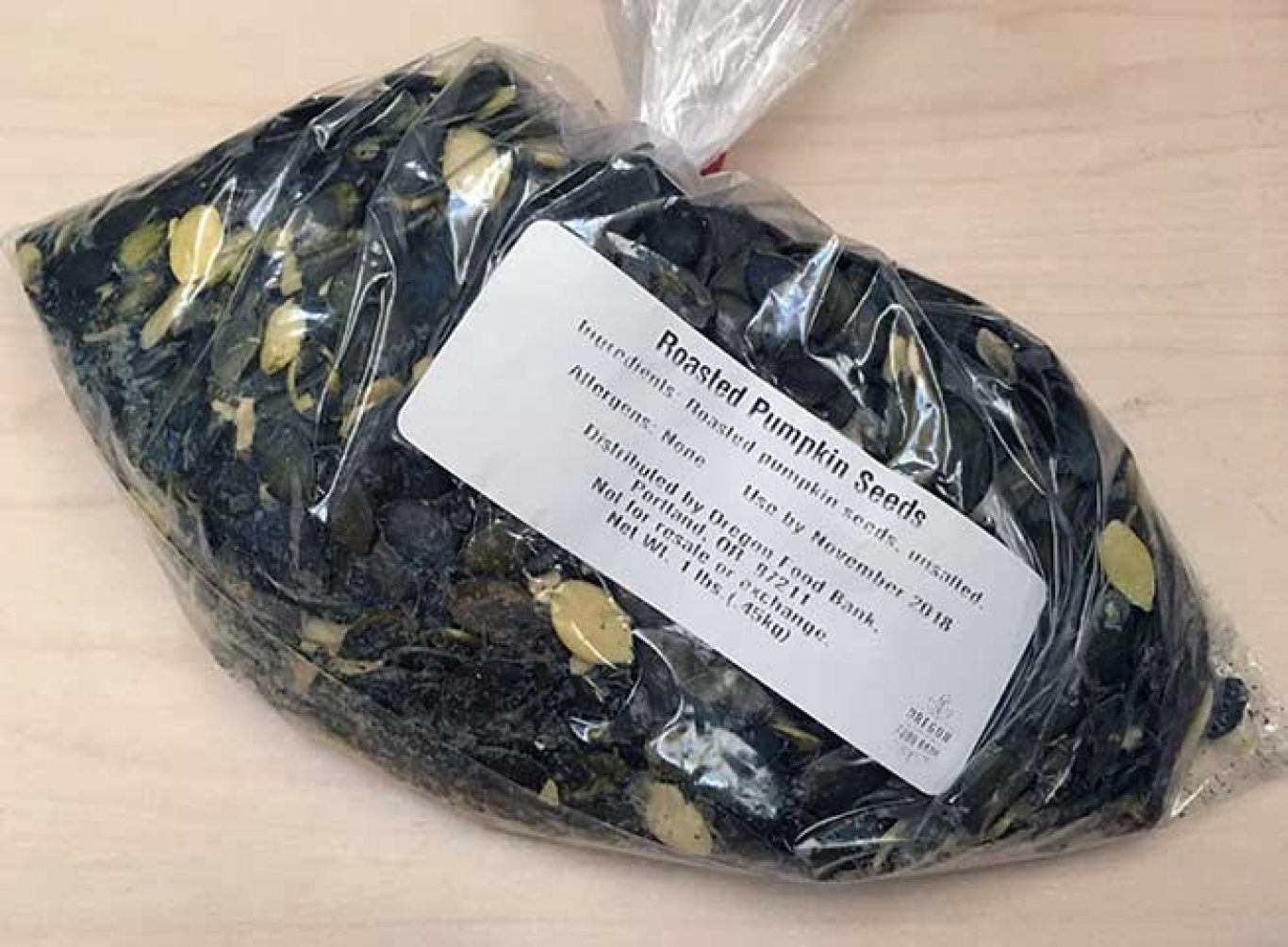Oregon Food Bank voluntarily recalls pumpkin seeds because of possible contamination by Listeria species
Oregon Food Bank voluntarily recalls pumpkin seeds because of possible contamination by Listeria species
*updated to add additional package information*
March 16, 2018 – As a result of the ongoing recall of donated chia seeds that began on March 12, 2018, Oregon Food Bank has initiated a voluntary recall of 63,825 pounds of pumpkin seeds received on the same donation. These donated pumpkin seeds have the potential to be contaminated with Listeria species. While no illnesses have been reported we are recalling this product out of an abundance of caution.
The pumpkin seeds were distributed in Oregon and Clark County, Washington through the Oregon Food Bank Network of regional food banks and participating food pantries. The product was distributed in one pound plastic poly film bags with a twist-type closure or a re-sealable pouch or a KALE JOY plastic bag. All pumpkin seeds were distributed between November 1, 2017 and March 16, 2018. See attached images for ease of identification.
Listeria species can include Listeria monocytogenes an organism which can cause serious and sometimes fatal infections in young children, frail or elderly people, and others with weakened immune systems. Although healthy individuals may suffer only short-term symptoms such as high fever, severe headache, stiffness, nausea, abdominal pain and diarrhea, Listeria monocytogenes infection can cause miscarriages and stillbirths among pregnant women. Anyone who has consumed these pumpkin seeds and is experiencing symptoms of food borne illness should consult with their primary physician or county health department.
Individuals should dispose of the product immediately. Any questions should be directed to Oregon Food Bank’s Facilities and Regulatory Compliance Manager Ryan Wist at 503-419-4160.



